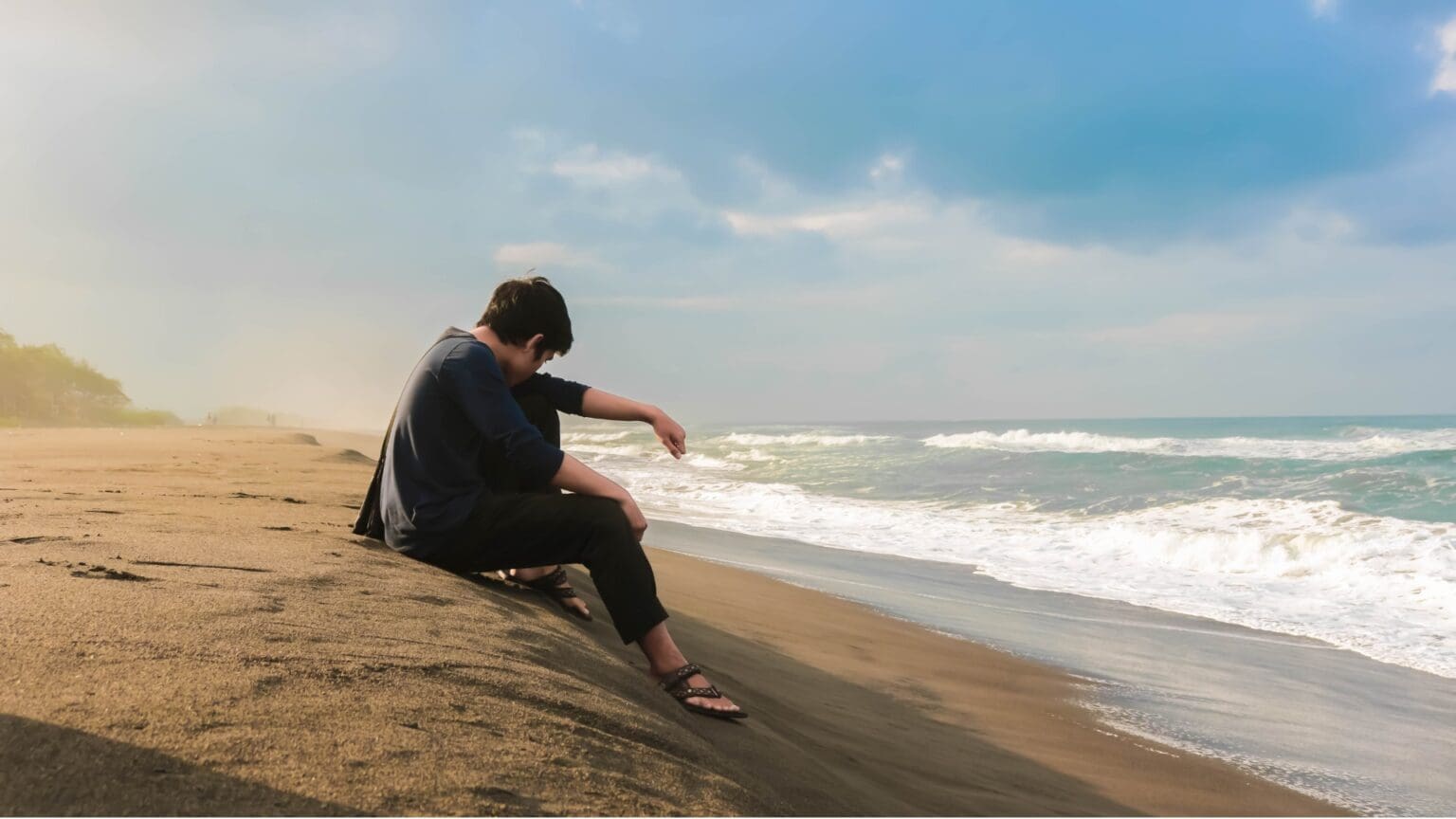In today’s world, many people feel the happiest and most fulfilled while on a vacation. They wait months and spend time at work to afford another trip. Although there are many styles of traveling, such as backpacking, luxury, solo, adventurous, or organized, we all seek experiences, fun, rest, or meaning on the journey, and we need to manage a range of emotions.
We can feel overwhelmed, disappointed, lost, or euphoric after landing on the other side of the earth, where everything —people, culture, language, food, smells, sounds, and weather—is all so different from home.
Learning how to process and cope with the challenges of traveling is key to a fulfilling holiday, regardless of the purpose or budget.
This blog post examines the impact of travel on mental health, particularly for tourists visiting culturally diverse or underdeveloped destinations. Whether you’re managing anxiety or just curious about “travel blues,” this article covers the hidden risks—and how to protect yourself.
In This Article
How Common Are Mental Health Issues During Travel?
Research in travel psychiatry and medicine estimates that around 11% of international travelers experience some form of psychological issue while abroad. Most of these are mild, like temporary anxiety, sleep disruption, or homesickness, but serious psychiatric emergencies still occur.
Data suggest that about 0.3% of travelers develop acute psychotic episodes, sometimes requiring medical evacuation. These events are rare but dangerous, especially in regions where mental health care is limited or culturally stigmatized.
Preexisting Mental Health Conditions: A Major Risk Factor
If you have a history of mental illness, travel requires careful planning. Disorders like depression, anxiety, bipolar disorder, or schizophrenia may remain stable at home but relapse under travel-related stress.
Sleep loss, jet lag, medication interruptions, or even just the chaos of new environments can tip the balance. Acknowledging the risk is a good start. Try to maintain healthy routines, such as getting adequate sleep, exercising regularly, eating a balanced diet, and limiting alcohol and caffeine consumption.
Many travel health insurance plans exclude psychiatric conditions. Consider purchasing extras, including medical evacuation for psychiatric emergencies and coverage for worsening of preexisting conditions.

Jet Lag, Sleep Loss, and Circadian Disruption
Jet lag isn’t just annoying; it can be a mental health trigger. Fatigue, insomnia, and circadian misalignment can mimic or worsen anxiety and mood disorders. A tired traveler is more likely to feel irritable, unfocused, or even paranoid.
If you’re prone to mental health fluctuations, managing sleep should be a top priority. Utilize light exposure, melatonin, and rest days to quickly regain your rhythm.
Culture Shock
Arriving in a completely new culture can feel like being dropped into another planet. You don’t understand the language, customs, or even simple social cues. When I first traveled outside Europe, to Vietnam, the first days felt like a fever dream.
This disorientation, known as culture shock, can lead to anxiety, sadness, and irritability. Simple tasks, such as buying food or asking for directions, can become emotionally draining. You may feel helpless or isolated.
The good news? Culture shock is normal. Most people adjust within a few days to a few weeks. Awareness and patience are crucial, while preparation can expedite acclimatization. Learn basic local phrases, research customs, and familiarize yourself with what to expect.

Homesickness and Social Isolation
Solo travelers, students abroad, and long-term tourists often feel homesick, especially after the initial excitement fades. Homesickness is more than missing your bed. It’s an adjustment disorder marked by sadness, obsessive thoughts about home, and even somatic complaints.
Preventive steps that help:
- Schedule regular video calls with friends and family.
- Join group tours or social events.
- Stay somewhere with a social atmosphere (like a hostel).
Travel Anxiety and Phobias
Even otherwise healthy travelers may experience anticipatory anxiety, fear of flying, or panic attacks. Up to 25% of people feel nervous about flying, and some avoid travel altogether because of it.
Others become anxious about getting sick, getting lost, or not speaking the language. These fears are normal, but if they interfere with your trip, consider seeking short-term therapy or learning coping strategies, such as grounding exercises or breathing routines.
Substance Use and Medication Triggers
Some travelers drink more or experiment with recreational drugs on vacation. This behavior can destabilize mental health or start an addiction.
Those with mental health conditions should avoid some medications used by travelers. For example, mefloquine and tafenoquine, both used for malaria prevention, are known to cause neuropsychiatric side effects. If you have a history of mental illness, avoid these. Consult a travel medicine specialist for safer alternatives.

Access to Care Abroad
Many countries don’t offer the kind of mental health care Westerners expect. Even where care exists, language and cultural barriers can make diagnosis and treatment difficult. Some countries lack psychiatric and psychological care entirely.
This is particularly dangerous for travelers experiencing acute psychiatric crises.
Medication
Another challenge is traveling with psychiatric medication, which can be prohibited in some countries.
These controlled substances often include stimulants used for ADHD (Ritalin®, Adderall®), benzodiazepines (Valium®, Xanax®), or even some antidepressants. Possession of these, even with a doctor’s note and original prescription bottles, may be illegal.
Check with embassies before departure. Countries with such strict regulations include Japan, India, and the UAE.
Telehealth
Thankfully, telemedicine has changed the game. Many travelers can now maintain therapy appointments via video, even from across the globe.
Before you go, arrange regular check-ins with your mental health provider. Set up secure communication channels (such as email or apps) and know what to do in the event of a crisis.

Post-Travel Blues: Why the Return Hurts
On a journey, you receive a high amount of stimuli from everything new to you. Travelers usually try to squeeze in as many activities and experiences as possible. Coming home to the routine of everyday life can feel underwhelming or even depressing. Known as reverse culture shock, this reaction includes boredom, disconnection, or demotivation.
Ease your return by sharing your stories with your social circle. Stay connected with people you met while traveling. You can even use this to enrich your life by keeping a traveler’s mindset at home. Go for a walk with no specific destination and try a meal or a coffee at places you’ve never been before.
How to Protect Your Mental Health Before You Go
- Get a Mental Health Check-Up
If you’ve ever struggled with mental health, consult a professional before traveling. They can assess your stability and help you make a plan.
- Pack Medications and Documents
Bring enough psychiatric medications for your entire trip. Include a doctor’s note, generic drug names, and dosage instructions. Keep them in your carry-on. Check the legality of the drug online or directly with the embassy of your destination’s country.
- Learn Coping Skills
Practice stress-management techniques like:
- Deep breathing
- Guided meditation
- Grounding exercises
These are your first line of defense available anywhere in the world.
- Build Your Support Network
Stay in touch with friends and family. Find community on the road: expat forums and Facebook groups, group activities, or apps that connect travelers.
- Prepare for the Unexpected
Have a mental health emergency plan. Be aware of the locations of embassies, hospitals with psychiatric services, and 24/7 hotlines. Consider insurance that covers psychiatric emergencies and repatriation.

Final Thoughts
Travel has the power to uplift, inspire, and change your perspective. But it also challenges your mind in unexpected ways. If you’re unprepared, the very act of exploring new worlds can shake your psychological balance.
Whether you live with mental illness or want to be mentally resilient abroad, knowledge is your passport to a healthier journey.
Resources
Centers for Disease Control and Prevention (CDC). (2025). CDC Yellow Book 2026: Health Information for International Travel. Oxford University Press.
Travel Medicine, 4th Edition – December 13, 2018, Authors: Jay S. Keystone, Phyllis E. Kozarsky, Bradley A. Connor, Hans D. Nothdurft, Marc Mendelson, Karin Leder, Language: English, Hardback ISBN: 9780323546966
Stewart, L., & Leggat, P. A. (1998). Culture shock and travelers. Journal of travel medicine, 5(2), 84–88. https://doi.org/10.1111/j.1708-8305.1998.tb00469.x
Felkai, P. P., Marcolongo, T., & Van Aswegen, M. (2020). Stranded abroad: a travel medicine approach to psychiatric repatriation. Journal of travel medicine, 27(2), taaa013. https://doi.org/10.1093/jtm/taaa013
Disclaimer:
The information provided in this blog post is for general informational and educational purposes only and is not a substitute for professional medical advice. Always consult your physician or other qualified healthcare provider with any health problem. The use or reliance on any information provided in this blog post is solely at your own risk.










